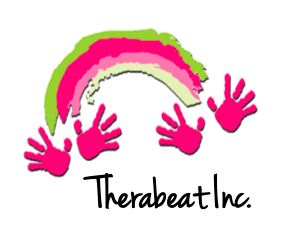Humans have an innate need for social connections with other individuals. According to Maslow’s hierarchy of needs, humans prioritize feelings of love and belongingness immediately after satisfying physiological needs and safety (McLeod, S.A., 2020, para. 2). Social groups provide us with an important part of our identity, and assist us in relating to our peers (McLeod, S.A., 2020, para. 1). Adequate social connections also benefit our health and quality of life. Social relationships have been found to boost mental health by reducing levels of stress, improving self-worth, and improving perceived confidence (McLeod, S.A., 2020, para. 2).
Individuals with intellectual and developmental disabilities often struggle with forming personal relationships with others due to their environment and how they are viewed in society. These individuals may feel frustrated due to lack of social interactions and personal connections, as well the inability to express themselves and be understood. Additionally, lack of meaningful connections may lead to a negative self-image and a further decline in social and communicative skills.
Music therapy group sessions provide clients with opportunities to make meaningful connections with each other and develop prosocial behaviors, such as initiating conversations, participating in reciprocal dialogues, and expressing emotions (Baumgarten & Wheeler, 2016, p. 120). Music therapy interventions can facilitate motivation, communication skills, and social interactions in a non-judgemental, non-threatening environment (Baumgarten & Wheeler, 2016, p.119). A 2016 study measured the ability of group music therapy sessions to increase initiation of conversations, reciprocal turn taking, and the ability to express an increased range of emotions among adult clients with various intellectual and developmental disabilities (Baumgarten & Wheeler, 2016, p. 120). Music therapy methods used in this study included listening to music, music assisted relaxation, improvisational music therapy activities, and re-creative music therapy activities such as songwriting and musical song-games (Baumgarten & Wheeler, 2016, p. 121). Results of this study showed that the clients were able to form trusting relationships with other group members. This contributed to an enhancement of prosocial behaviors, such as engaging in conversations, turn taking, and supporting emotional expression. Additionally, the clients displayed a reduction in antisocial behaviors, such as starting fights, teasing other group members, and being disruptive during the music therapy sessions (Baumgarten & Wheeler, 2016, p. 125).
Current government guidelines set in place to prevent the spread of COVID-19 have altered how we as a society interact with each other. A lot of organizations and individuals in the community understand the need to continue social interactions during this trying time. Before the practice of social distancing was established and enforced, music therapists at Therabeat Inc. partnered with Empower Cherokee to provide in-person opportunities for adult clients with disabilities to interact with each other and express themselves in a non-threatening environment. Luckily, these clients are still able to meet and engage with each other during online music therapy sessions via zoom.
A popular intervention used in virtual music therapy with clients from Empower is songwriting. This intervention has been used in sessions to address the current changes in daily life and the development of social skills. Additionally, this intervention provides opportunities for the clients to get to know each other better by relating to the personal responses of others. In the picture shown, the music therapy intern and clients worked together to write a song discussing things that make them happy using the tune “A Wonderful World” by Louis Armstrong. This intervention allowed the clients to express their individual preferences as well as learning what their peers like as well.
Maintaining meaningful social connections is more important now than ever. With the uncertainty of society today, it is essential to have opportunities to engage with others and express ourselves. Individuals with intellectual and social disabilities need the opportunity to continue to develop their social skills and manage their emotions by engaging with their peers. As Empower states on their website, “physical distance, not social isolation.” (no author, 2020).
References
Baumgarten, H.R., & Wheeler, B.L. (2016). The influence of music therapy on prosocial behavior of adults with disabilities. Music & Medicine, 8(3), 118-127.
McLeod, S.A. (2020). Maslow’s hierarchy of needs. Retrieved May 28, 2020, from https://www.simplypsychology.org/maslow.html
No author (2020). The importance of social connection. Retrieved May 28, 2020, from https://www.mindwise.org/blog/uncategorized/the-importance-of-social-connection/
No author (2020). Empower cherokee. Retrieved May 28, 2020, from https://www.empowercherokee.org/
Pavlicevic, M., O’Neil, N., Powell, H., Jones, O., & Sampathianaki, E. (2014). Making music, making friends: Long-term music therapy with young adults with severe learning disabilities. Journal of Intellectual Disabilities, 18(1), 5-19.

